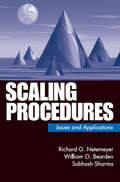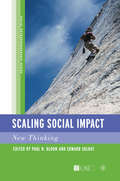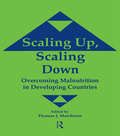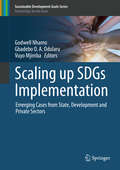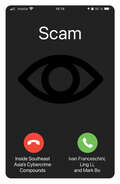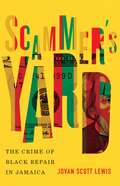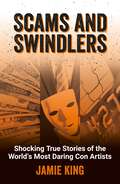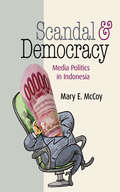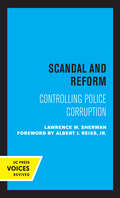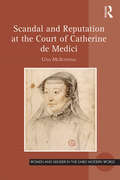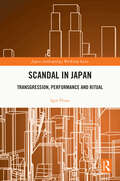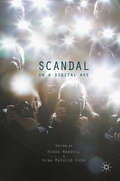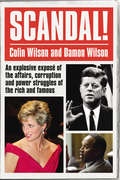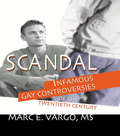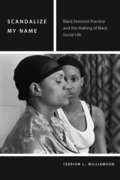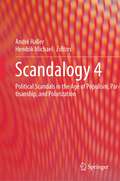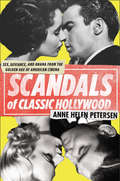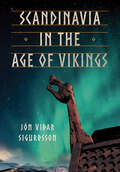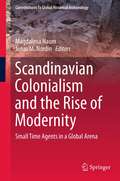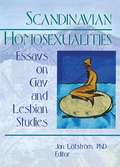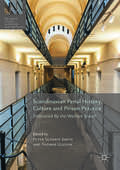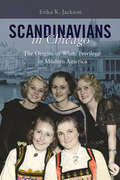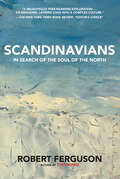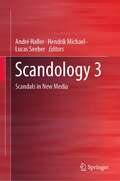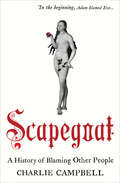- Table View
- List View
Scaling Procedures: Issues and Applications
by Dr Richard G. Netemeyer Dr William O. Bearden Dr Subhash SharmaScaling Procedures: Issues and Applications examines the issues involved in developing and validating multi-item self-report scales of latent constructs. Distinguished researchers and award-winning educators Richard G. Netemeyer, William O. Bearden, and Subhash Sharma present a four-step approach for multi-indicator scale development. With these steps, the authors include relevant empirical examples and a review of the concepts of dimensionality, reliability, and validity. Scaling Procedures: Issues and Applications supplies cutting-edge strategies for developing and refining measures. Providing concise chapter introductions and summaries, as well as numerous tables, figures, and exhibits, the authors present recommended steps and overlapping activities in a logical, sequential progression.
Scaling Social Impact: New Thinking (Social Entrepreneurship Series)
by P. Bloom E. SklootMany social entrepreneurs struggle to take successful, innovative programs that address social problems on a local or limited basis and scale them up to expand their impact in a more widespread, deeper, and efficient way. In Scaling Social Impact , the editors address this issue with a comprehensive collection of original papers.
Scaling Up Scaling Down: Overcoming Malnutrition in Developing Countries
by Thomas J. MarchioneThe individual and institutional capacities required for the prevention and reduction of nutritional insecurity and hunger in lesser-developed countries as the twenty-first century approaches are identified in this book. Household nutritional "security" can be defined as the successful The essays in this book champion the idea of increasing, or scaling up, grass roots operations to provide nutritional security, while scaling down the efforts of national and international institutions. Scaling up involves strengthening local capacities to improve and expand upon current successful programs by building upon existing local culture and organizations. This, in turn, enables the programs to strengthen relationships with national governments, international bilateral/multilateral donors, as well as non-governmental organizations. Scaling down concerns the ways and means by which these various organizations encourage and complement the local development. Therefore, as local capacities are scaled up, the national/international control over decisions and functions is, ideally, scaled down. The volume also directly addresses the resultant complication: how to create programs that are both culturally specific and that will flourish well into the future.
Scaling up SDGs Implementation: Emerging Cases from State, Development and Private Sectors (Sustainable Development Goals Series)
by Godwell Nhamo Vuyo Mjimba Gbadebo O. A. OdularuThis volume challenges global leaders and citizenry to do more in order to resource the implementation of the 2030 Agenda for Sustainable Development (AfSD) and its 17 interwoven Sustainable Development Goals (SDGs). Starting from the concept ‘we cannot manage what we cannot measure’, the book presents some cases showing how to draw national level baselines for the domestication and localisation of the SDGs seeking to provide a clear roadmap towards achieving the 2030 AfSD. Scaling up SDGs Implementation is targeted at the United Nations, national and state governments, sub-national governments, the corporate sector and civil society, including higher education institutes, labour groups, non-governmental organisations and youth movements. The book is cognizant of these institutions’ common, but differentiated responsibilities and capabilities within their socio-political, environmental and economic conditions. The book presents case studies of how the corporate sector has been scaling up SDGs implementation, from the tourism sector, insurance, to the aviation and agricultural sectors. To make sure that no one is left behind, the volume includes cases on solutions for pressing environmental and socio-economic problems ranging from cooperatives in Brazil to the conservation of springs in Zimbabwe. The matter of finding synergies between the climate SDG and the Paris Agreement’s Nationally Determined Contributions (NDCs) is elaborated at length. Lastly, the book discusses how institutions of higher education remain critical pillars in SDGs scaling up, with cases of curriculum re-orientation in South Africa to the rolling out of the Women’s University in Africa. In this context, this volume challenges every global citizen and organization to invest every effort into making the implementation of the SDGs a success as we welcome the second four to five year segment down the road to the year 2030.
Scam: Inside Southeast Asia's Cybercrime Compounds
by Ling Li Ivan Franceschini Mark BoA probing investigation of Southeast Asia&’s online scam industry – told through the voices of survivorsRunning the gamut from the infamous &‘pig butchering&’ romance con to sophisticated online extortion and investment fraud, Southeast Asia has emerged as the global hub for cybercrime. Based on years of field research, Scam takes an in-depth look at the history and inner dynamics of the region&’s online scam industry. Revealed are the appalling working conditions — akin to modern slavery — in the hundreds of prisonlike compounds that have mushroomed throughout multiple countries. The result is a shocking exposé of victims forced to be perpetrators, a tragic modern tale.
Scammer's Yard: The Crime of Black Repair in Jamaica
by Jovan Scott LewisTells the story of Jamaican &“scammers&” who use crime to gain autonomy, opportunity, and repair There is romance in stealing from the rich to give to the poor, but how does that change when those perceived rich are elderly white North Americans and the poor are young Black Jamaicans? In this innovative ethnography, Jovan Scott Lewis tells the story of Omar, Junior, and Dwayne. Young and poor, they strive to make a living in Montego Bay, where call centers and tourism are the two main industries in the struggling economy. Their experience of grinding poverty and drastically limited opportunity leads them to conclude that scamming is the best means of gaining wealth and advancement. Otherwise, they are doomed to live in &“sufferation&”—an inescapable poverty that breeds misery, frustration, and vexation. In the Jamaican lottery scam run by these men, targets are told they have qualified for a large loan or award if they pay taxes or transfer fees. When the fees are paid, the award never arrives, netting the scammers tens of thousands of U.S. dollars. Through interviews, historical sources, song lyrics, and court testimonies, Lewis examines how these scammers justify their deceit, discovering an ethical narrative that reformulates ideas of crime and transgression and their relationship to race, justice, and debt. Scammer&’s Yard describes how these young men, seeking to overcome inequality and achieve autonomy, come to view crime as a form of liberation. Their logic raises unsettling questions about a world economy that relegates postcolonial populations to deprivation even while expecting them to follow the rules of capitalism that exacerbate their dispossession. In this groundbreaking account, Lewis asks whether true reparation for the legacy of colonialism is to be found only through radical—even criminal—means.
Scams and Swindlers: Shocking True Stories of the World’s Most Daring Con Artists
by Jamie KingFilled with tales of con artists and their mind-bending schemes, this thrilling compendium of the world's most incredible scams is truly stranger than fiction. From swindlers and imposters to double lives and faked personas, discover the people behind these scams and the lengths they went to in order to commit them.
Scandal and Democracy: Media Politics in Indonesia
by Mary E. McCoySuccessful transitions to enduring democracy are both difficult and rare. In Scandal and Democracy, Mary E. McCoy explores how newly democratizing nations can avoid reverting to authoritarian solutions in response to the daunting problems brought about by sudden change. The troubled transitions that have derailed democratization in nations worldwide make this problem a major concern for scholars and citizens alike.This study of Indonesia's transition from authoritarian rule sheds light on the fragility not just of democratic transitions but of democracy itself and finds that democratization's durability depends, to a surprising extent, on the role of the media, particularly its airing of political scandal and intraelite conflict. More broadly, Scandal and Democracy examines how the media's use of new freedoms can help ward off a slide into pseudodemocracy or a return to authoritarian rule. As Indonesia marks the twentieth anniversary of its democratic revolution of 1998, it remains among the world's most resilient new democracies and one of the few successful democratic transitions in the Muslim world. McCoy explains the media's central role in this change and corroborates that finding with comparative cases from Mexico, Tunisia, and South Korea, offering counterintuitive insights that help make sense of the success and failure of recent transitions to democracy.
Scandal and Reform: Controlling Police Corruption
by Lawrence W. ShermanThis title is part of UC Press's Voices Revived program, which commemorates University of California Press’s mission to seek out and cultivate the brightest minds and give them voice, reach, and impact. Drawing on a backlist dating to 1893, Voices Revived makes high-quality, peer-reviewed scholarship accessible once again using print-on-demand technology. This title was originally published in 1978.
Scandal and Reputation at the Court of Catherine de Medici (Women and Gender in the Early Modern World)
by Una McIlvennaScandal and Reputation at the Court of Catherine de Medici explores Catherine de Medici's 'flying squadron', the legendary ladies-in-waiting of the sixteenth-century French queen mother who were alleged to have been ordered to seduce politically influential men for their mistress's own Machiavellian purposes. Branded a 'cabal of cuckoldry' by a contemporary critic, these women were involved in scandals that have encouraged a perception, which continues in much academic literature, of the late Valois court as debauched and corrupt. Rather than trying to establish the guilt or innocence of the accused, Una McIlvenna here focuses on representations of the scandals in popular culture and print, and on the collective portrayal of the women in the libelous and often pornographic literature that circulated information about the court. She traces the origins of this material to the all-male intellectual elite of the parlementaires: lawyers and magistrates who expressed their disapproval of Catherine's political and religious decisions through misogynist pamphlets and verse that targeted the women of her entourage. Scandal and Reputation at the Court of Catherine de Medici reveals accusations of poisoning and incest to be literary tropes within a tradition of female defamation dating to classical times that encouraged a collective and universalizing notion of women as sexually voracious, duplicitous and, ultimately, dangerous. In its focus on manuscript and early print culture, and on the transition from a world of orality to one dominated by literacy and textuality, this study has relevance for scholars of literary history, particularly those interested in pamphlet and libel culture.
Scandal in Japan: Transgression, Performance and Ritual (Japan Anthropology Workshop Series)
by Igor PrusaThis book is an exploration of media scandals in contemporary Japanese society. Shedding new light on the study of scandal in Japan, the book offers a novel view of scandal as a specific social ritual which follows moral disturbances in Japanese society. Society and culture are analyzed largely in terms of social performances, while the focus is on how Japanese transgressors talk and act when explaining their scandals to the public. A detailed analysis of three case studies is provided: the drug scandal of the popular Japanese celebrity Sakai Noriko from 2009, the political donation scandal from 2009 centering the heavyweight politician Ozawa Ichirō, and the Olympus accounting fraud revealed by the British CEO Michael Woodford in 2011. This book will appeal to students and scholars of Japanese culture and society, anthropology, communication and media studies.
Scandal in a Digital Age
by Hinda Mandell Gina Masullo ChenThis book explores the way today's interconnected and digitized world--marked by social media, over-sharing, and blurred lines between public and private spheres--shapes the nature and fallout of scandal in a frenzied media environment. Today's digitized world has erased the former distinction between the public and private self in the social sphere. Scandal in a Digital Age marries scholarly research on scandal with journalistic critique to explore how our Internet culture driven by (over)sharing and viral, visual content impacts the occurrence of scandal and its rapid spread online through retweets and reposts. No longer are examples of scandalous behavior "merely" reported in the news. Today, news consumers can see the visual evidence of salacious behavior whether through an illicit tweet or video with a simple click. And we can't help but click.
Scandal!: An Explosive Exposé of the Affairs, Corruption and Power Struggles of the Rich and Famous
by Colin Wilson Damon WilsonWhat makes a good scandal? Money, politics and power, and a huge dose of media interest. Scandal reigns in the world of politics, celebrity, business, religion, royalty and art, and this book covers it all - from Watergate to Michael Jackson, Diana to Oscar Wilde. Distinguished writer Colin Wilson delves into the murky intrigues of British and American life to bring the most scandalous secrets to light.Containing brand new chapters on Michael Jackson, ENRON, the death of David Kelly, the Catholic Church sex scandals and the cash-for-honours scandal, and an updated chapter on OJ Simpson, here are the embarrassing true stories the rich and famous tried but failed to hide.
Scandal: Infamous Gay Controversies of the Twentieth Century
by Marc E VargoExamine the cornerstone incidents of modern gay political history!Scandal: Infamous Gay Controversies of the Twentieth Century is a compelling and thorough examination of same-sex controversies that range from accusations of obscenity and libel to espionage, treason, murder, and political dissent, with penalties that included censorship, imprisonment, deportation, and death. In each case, scandal brought the subject of homosexuality into public view in an explosive, sensational manner, stalling (and sometimes reversing) any progress made by the gay and lesbian community in mainstream society. Author Marc E. Vargo details the dignity, courage, and wisdom displayed by the gay men and women under attack in the face of public judgment.A unique blend of biography and gay political history, Scandal: Infamous Gay Controversies of the Twentieth Century recounts seven international incidents that tally the cost of being homosexual in a heterosexual society. In each episode, gay men or lesbians are targeted for legal persecution, subjected to sensationalized media coverage, and publicly condemned. The book examines the short- and long-term consequences of each controversy for those involved and the impact each scandal had on gay and mainstream society.Scandal: Infamous Gay Controversies of the Twentieth Century documents the stories of: Italian filmmaker Pier Paolo Pasolini--his 1975 murder and its subsequent cover-up British diplomats Guy Burgess and Donald Maclean--their defection to Russia at the height of the Cold War Cuban political dissident Reinaldo Arenas--his imprisonment in the 1960s that led to the exposure of the violent homophobia of the Castro regime Irish consul Roger Casement--his execution on treason charges and the later accusation that crucial evidence had been forged South African human rights activist Simon Nkoli--his persecution by his country's all-white, pro-apartheid government British writer Radclyffe Hall--the obscenity trial in the 1920s surrounding her novel, The Well of Loneliness German emperor Kaiser Wilhelm II--the exposé of his relationship with Prince Eulenburg A scholarly work of historical significance, Scandal: Infamous Gay Controversies of the Twentieth Century is written in a straightforward tone that appeals to academics, students, and interested readers, gay or straight. The book stands alone as a record of the role played by public opinion in modern gay history.
Scandalize My Name: Black Feminist Practice and the Making of Black Social Life (Commonalities)
by Terrion L. WilliamsonFrom sapphire, mammy, and jezebel, to the angry black woman, baby mama, and nappy-headed ho, black female iconography has had a long and tortured history in public culture. The telling of this history has long occupied the work of black female theorists—much of which has been foundational in situating black women within the matrix of sociopolitical thought and practice in the United States. Scandalize My Name builds upon the rich tradition of this work while approaching the study of black female representation as an opening onto a critical contemplation of the vagaries of black social life. It makes a case for a radical black subject-position that structures and is structured by an intramural social order that revels in the underside of the stereotype and ultimately destabilizes the very notion of “civil society.”At turns memoir, sociological inquiry, literary analysis, and cultural critique, Scandalize My Name explores topics as varied as serial murder, reality television, Christian evangelism, teenage pregnancy, and the work of Toni Morrison to advance black feminist practice as a mode through which black sociality is both theorized and made material.
Scandalogy 4: Political Scandals in the Age of Populism, Partisanship, and Polarization
by André Haller Hendrik MichaelThis volume examines the growing presence of populism, partisanship, and polarization and analyzes what this means for scandalization processes. While politics appears to have entered a mode of perpetual crisis and growing dysfunctionality, the rapid succession of scandals may be a symptom of this crisis and its catalyst at the same time. The book provides a better definition of political scandals and discusses from an interdisciplinary and critical scientific perspective how such scandals are relevant to political developments and how they impact public discourse and media practices. International experts from various subfields of communication studies, political communication research as well as related disciplines contribute to the volume with conceptual, empirical, and methodological approaches which reflect on political scandals and the role of media and/or communication. Presenting a unique perspective and providing a first in-depth insight into the relationship between polarization, partisanship, populist communication, and scandalization, the book will appeal to students, researchers, and scholars from different disciplines, as well as practitioners and policy-makers interested in a better understanding of political scandals, their impact on public discourse and political developments, and their catalyzation through media and communication.
Scandals of Classic Hollywood
by Anne Helen PetersenGossip meets history--a compulsively readable collection of Hollywood's most notorious clashes and controversies in the spirit of Hollywood Babylon Believe it or not, America's fascination with celebrity culture was thriving well before the days of TMZ, Perez Hilton, Charlie Sheen's breakdown and allegations against Woody Allen. And the stars of yesteryear? They weren't always the saints that we make them out to be. Film professor Anne Helen Petersen is here to set the record straight with Scandals of Classic Hollywood. Pulling little-known gems from the archives of film history, Petersen reveals eyebrow-raising information, including: The smear campaign against the original It Girl, Clara Bow, started by her best friend The heartbreaking story of Montgomery Clift's rapid rise to fame, the car accident that destroyed his face, and the "long suicide" that followed Fatty Arbuckle's descent from Hollywood royalty, fueled by allegations of a boozy orgy turned violent assault Why Mae West was arrested and jailed for "indecency charges" And much more Part biography, part cultural history, these stories cover the stuff that films are made of: love, sex, drugs, illegitimate children, illicit affairs, and botched cover-ups. But it's not all just tawdry gossip in the pages of this book. The stories are all contextualized within the boundaries of film, cultural, political, and gender history, making for a read that will inform as it entertains. Based on Petersen's popular column on the Hairpin, but featuring 100% new content, Scandals of Classic Hollywood is sensationalism made smart.
Scandinavia in the Age of Vikings
by Jon Vidar SigurdssonIn Scandinavia in the Age of Vikings, Jón Viðar Sigurðsson returns to the Viking homeland, Scandinavia, highlighting such key aspects of Viking life as power and politics, social and kinship networks, gifts and feasting, religious beliefs, women's roles, social classes, and the Viking economy, which included farming, iron mining and metalworking, and trade.Drawing of the latest archeological research and on literary sources, namely the sagas, Sigurðsson depicts a complex and surprisingly peaceful society that belies the popular image of Norsemen as bloodthirsty barbarians. Instead, Vikings often acted out power struggles symbolically, with local chieftains competing with each other through displays of wealth in the form of great feasts and gifts, rather than arms. At home, conspicuous consumption was a Viking leader's most important virtue; the brutality associated with them was largely wreaked abroad.Sigurðsson's engaging history of the Vikings at home begins by highlighting political developments in the region, detailing how Danish kings assumed ascendency over the region and the ways in which Viking friendship reinforced regional peace. Scandinavia in the Age of Vikings then discusses the importance of religion, first pagan and (beginning around 1000 A.D.) Christianity; the central role that women played in politics and war; and how the enormous wealth brought back to Scandinavia affected the social fabric—shedding new light on Viking society.
Scandinavian Colonialism and the Rise of Modernity
by Magdalena Naum Jonas M. NordinIn Scandinavian Colonialism and the Rise of Modernity: Small Time Agents in a Global Arena, archaeologists, anthropologists, and historians present case studies that focus on the scope and impact of Scandinavian colonial expansion in the North, Africa, Asia and America as well as within Scandinavia itsself. They discuss early modern thinking and theories made valid and developed in early modern Scandinavia that justified and propagated participation in colonial expansion. The volume demonstrates a broad and comprehensive spectrum of archaeological, anthropological and historical research, which engages with a variation of themes relevant for the understanding of Danish and Swedish colonial history from the early 17th century until today. The aim is to add to the on-going global debates on the context of the rise of the modern society and to revitalize the field of early modern studies in Scandinavia, where methodological nationalism still determines many archaeological and historical studies. Through their theoretical commitment, critical outlook and application of postcolonial theories the contributors to this book shed a new light on the processes of establishing and maintaining colonial rule, hybridization and creolization in the sphere of material culture, politics of resistance, and responses to the colonial claims. This volume is a fantastic resource for graduate students and researchers in historical archaeology, Scandinavia, early modern history and anthropology of colonialism
Scandinavian Homosexualities: Essays on Gay and Lesbian Studies
by Jan LeofstreomScandinavian Homosexualities offers non-Scandinavian readers a rare opportunity to explore the history, sociology, notions, experiences, and cultural politics of homosexuality in Scandinavian societies in English. This unique insight into some of the most advanced countries in regard to institutionalized civil rights for lesbians and gays will help you direct change and progress in your own country.Chapters in Scandinavian Homosexualities draw from a range of theoretical and methodological strands to give you an overall picture of homosexuality in Scandinavian society. They cover a wide range of issues, including: traditions and practices in the legal regulation of same-sex sexuality the historically changing understanding of femininity and masculinity physical, social, and cultural niches of same-sex desire and sexual conduct theoretical approaches to individual experiences of sexual and erotic selfIn Scandinavian Homosexualities, you’ll come to see the cultural and social differences that exist between Scandinavian and Anglo-American societies. Specifically, you’ll see how differences in the culture of gender and sexuality may bear upon our scholarly theories and conceptualizations of homosexuality and on our analysis of sexual and gender politics. In many of the chapters there is, thus, an agenda to encourage comparisons among Western societies.The Scandinavian countries are among the most advanced in the world with regard to institutionalized civil rights of lesbians and gays. They are also, which is relevant for analyses of sexuality and homosexuality, societies where men and women are exceptionally equal in access to social, economic, and cultural resources. You can directly apply what you learn in Scandinavian Homosexualities of the cultural specificities of gender and sexuality in Scandinavian societies to your efforts to establish equality for same-sex relationships within your own culture.
Scandinavian Penal History, Culture and Prison Practice
by Peter Scharff Smith Thomas UgelvikThis book draws on historical and cross-disciplinary studies to critically examine penal practices in Scandinavia. The Nordic countries are often hailed by international observers as 'model societies', with egalitarian welfare policies, low rates of poverty, humane social policies and human rights oriented internal agendas. This book, however, paints a much more nuanced picture of the welfare policies, ideologies and social control in strong centralistic states. Based on extensive new empirical data, leading Nordic and international scholars discuss the relationship between prison conditions in Scandinavia and Scandinavian social policy more generally, and argue that it is not always liberating and constructive to be embraced by a powerful welfare state. This book is essential reading for researchers of state punishment in Scandinavia, and it is highly relevant for anyone interested in the 'Nordic Model' of social policy.
Scandinavians in Chicago: The Origins of White Privilege in Modern America
by Erika K. JacksonScandinavian immigrants encountered a strange paradox in 1890s Chicago. Though undoubtedly foreign, these newcomers were seen as Nordics--the "race" proclaimed by the scientific racism of the era as the very embodiment of white superiority. As such, Scandinavians from the beginning enjoyed racial privilege and the success it brought without the prejudice, nativism, and stereotyping endured by other immigrant groups. Erika K. Jackson examines how native-born Chicagoans used ideological and gendered concepts of Nordic whiteness and Scandinavian ethnicity to construct social hegemony. Placing the Scandinavian-American experience within the context of historical whiteness, Jackson delves into the processes that created the Nordic ideal. She also details how the city's Scandinavian immigrants repeated and mirrored the racial and ethnic perceptions disseminated by American media. An insightful look at the immigrant experience in reverse, Scandinavians in Chicago bridges a gap in our understanding of how whites constructed racial identity in America.
Scandinavians: In Search of the Soul of the North
by Robert Ferguson“An engaging, layered look into a culture complex enough both to produce stylish rain gear and to embrace the foul weather that necessitates it.” —The New York Times Book ReviewWe fill our homes with Nordic furniture; we envy their humane social welfare system and healthy outdoor lifestyle; we devour their crime fiction. Even their strangely attractive melancholia seems to express a stoic, commonsensical acceptance of life’s vicissitudes. But how valid is this outsider’s view of Scandinavia, and how accurate is our picture of life in Scandinavia today? Scandinavians follows a chronological progression across the Northern centuries: the Vendel era of Swedish prehistory; the age of the Vikings; the Christian conversions of Denmark, Norway, Sweden and Iceland; the unified Scandinavian state of the late Middle Ages; the sea-change of the Reformation; the kingdom of Denmark-Norway; King Gustav Adolphus and the age of Sweden’s greatness; the cultural golden age of Ibsen, Strindberg, and Munch; the impact of the Second World War; Scandinavia’s postwar social democratic nirvana; and the terror attack of Anders Behring Breivik. Scandinavians is also a personal investigation, with award-winning author Robert Ferguson as the ideal companion as he explores not only the region’s society, politics, culture, and temperament, but also wide-ranging topics such as the power and mystique of Scandinavian women, from the Valkyries to the Vikings; from Nora and Hedda to Garbo and Bergman. “A delightful history in which the author truly captures ‘the soul of the North.’ ”—Kirkus Reviews
Scandology 3: Scandals in New Media
by André Haller Hendrik Michael Lucas SeeberThis book presents research on mediated scandals and substantiates the understanding of such forms of scandals and their impact on societies. Additionally, it connects the study of scandals with the broader fields of political communication research, organizational communication, journalism studies, and digital communication research.The authors focus on the 21st century as an age of perpetual scandalization and on digital technologies as a catalyst in this respect. Against this backdrop, the book examines different aspects of the transformation of mediated scandals through digital communication practices.Topics covered include, but are not limited to, the scandalizing potential of new media and the requirement of modified strategies of reputation management and crisis communication in politics, the entertainment industry, and the economic system among others; a different perspective on professional journalism and scandals created through new media; technological infrastructure and digital tools allowing journalists to establish new means to investigate hard scandals, i.e., substantial financial or political wrongdoings by the economic and political elite.The book, therefore, is a must-read for researchers and scholars from different disciplines, as well as practitioners and policy-makers interested in a better understanding of the study of scandals, their impact on societies, and their catalyzation through new media.
Scapegoat: A History of Blaming Other People
by Charlie CampbellA &“brief and vital account&” of humanity&’s long history of playing the blame game, from Adam and Eve to modern politics—&“a relevant and timely subject&” (The Daily Telegraph). We may have come a long way from the days when a goat was symbolically saddled with all the iniquities of the children of Israel and driven into the wilderness, but has our desperate need to absolve ourselves by pinning the blame on someone else really changed all that much? Charlie Campbell highlights the plight of all those others who have found themselves in the wrong place at the wrong time, illustrating how God needs the Devil as Sherlock Holmes needs Professor Moriarty or James Bond needs &“Goldfinger.&” Scapegoat is a tale of human foolishness that exposes the anger and irrationality of blame-mongering while reminding readers of their own capacity for it. From medieval witch burning to reality TV, this is a brilliantly relevant and timely social history that looks at the obsession, mania, persecution, and injustice of scapegoating. &“A wry, entertaining study of the history of blame . . . Trenchantly sardonic.&” —Kirkus Reviews
